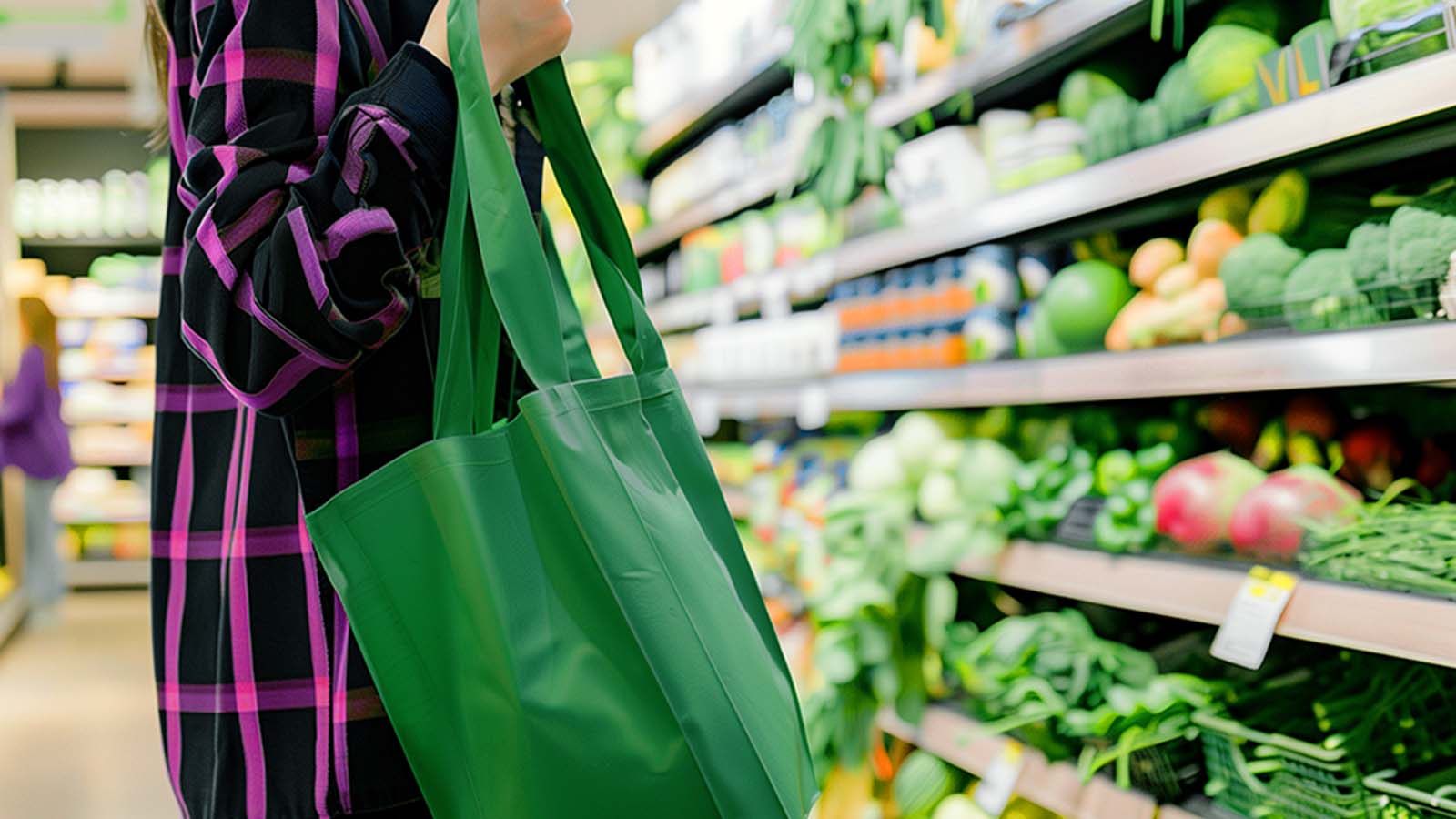5 min read
Loyalty Meets Health & Wellness: Driving Healthier Choices in Grocery Retail
Health and wellness considerations influence consumers' grocery purchasing decisions; loyalty programs can tap into this demand through targeted engagement
Get the latest insights, research and news delivered straight to your inbox.
Plus, enter to win the 2nd edition of Omnichannel Retail by Tim Mason & Sarah Jarvis!
No spam. We promise. 💜
AIR Platform: Loyalty & personalization for retailers
Eagle Eye's AI-powered platform unifies loyalty management and 1-to-1 personalization. Capture first-party data, deliver personalized experiences at scale, and measure results. Trusted by leading grocery, fashion, and hospitality brands.
AI Personalization Science→
Unlock the full value of your customer data with AI you can trust, built for retailers to deliver personalization at scale
Real-Time Loyalty→
Build lasting loyalty with a proven engine trusted by leading omnichannel retailers
Omnichannel Promotions→
Drive growth where it counts with the most flexible promotions platform in retail
Learn, explore, and stay ahead
Insights, guidance, and tools to help retailers and partners get more from loyalty and personalization.
Featured content
The A-Z of Customer Loyalty→
A practical guide to building loyalty leadership in 2026 - from AI-powered personalization to real-time decisioning and ROI.
Investor relations
Find results, reports, regulatory announcements, and corporate governance information for Eagle Eye Solutions Group plc.
Featured content
2025 Annual Report→
Company performance, governance, and investor information in one place.
Built for retailers operating at scale
Powering loyalty, personalization, and promotions across complex, multi-channel retail environments.
Giant Eagle case study→
Transformed myPerks into a real-time, scalable loyalty platform, powering millions of personalized offers and faster, more flexible campaign execution.
Tesco case study→
Delivered AI-driven personalized challenges to millions of Clubcard members, increasing engagement and proving 1:1 marketing can scale.
See all our case studies→
Built to partner at scale
Working with technology, solution, and integration partners to help retailers deliver smarter loyalty and personalization.
Become a partner
Explore how we work with partners to build, integrate, and scale loyalty and personalization for retailers.
We're the personalization people.
Our technology helps retailers design and manage world-class loyalty programs that capture rich first-party data - and then applies built-for-retail AI to deliver 1:1 personalization at scale.
5 min read
 Eagle Eye
Updated on November 20, 2024
Eagle Eye
Updated on November 20, 2024

Grocery shopping, though routine, involves a broad set of considerations and choices. Consumers must weigh a range of factors, from which products to buy to where to shop. While price, quality and convenience have traditionally guided these decisions, sustainability is becoming a significant consideration for shoppers.
The rising importance of sustainability in consumer shopping and spending patterns presents retailers with a valuable opportunity to grow customer loyalty–and, consequently, increase frequency and revenue. By simply highlighting and/or expanding their range of sustainable goods and aligning loyalty and communication strategies to meet this growing demand, retailers can capitalize on this adjustment in consumer priorities.
To better understand the role sustainability plays for North American shoppers and assess the potential opportunity for retailers, we surveyed 1,096 adults in the U.S. and Canada in August 2024, the results of which are published in the Green Loyalty report. The survey gathered consumers’ views on sustainability, health and wellness, focusing on grocery shopping habits, purchasing decisions and loyalty behaviors.
Our survey confirmed that sustainability is indeed a significant factor for most shoppers–56% of them, in fact. Although its importance varies across demographic segments, sustainability remains a powerful driver of consumer spending--provided retailers take the necessary steps to cater to this demand.
While some consumer segments have long embraced more sustainable lifestyles—seeking to reduce their carbon footprints and support environmentally friendly causes—our survey data underscores the growing prominence of sustainability in North American grocery shopping preferences across the board.
When asked, "How important are sustainability considerations to your typical grocery purchasing decisions?" 56% of respondents said they were "extremely" or "very" important, while a further 31% rated them as "somewhat" important.
Brand and product availability heavily influence grocery purchasing decisions. Our survey data suggest that retailers should assess their range of sustainable products to ensure they meet consumer demand across categories and make their sustainable assortments more visible in stores and online through targeted communication and awareness strategies. A recent Bain & Company survey found that 33% of shoppers who began buying sustainable products did so simply because they were available in the stores they shopped at. Another 2% cited awareness campaigns by brands or retailers.
Another finding in the Green Loyalty survey has direct implications for retailers: almost half (48%) of consumers consider it extremely or very important to shop with a retail brand that aligns with their values on sustainability, environmental awareness, responsibly sourced products and carbon impact.
Combined, these findings—that most consumers view sustainability as important and nearly half prioritize shopping with brands that share their values—reveal a market ripe for immediate engagement through more concerted sustainability efforts.
What might these efforts look like? First, retailers should make it easier for consumers to make sustainable purchases. The same Bain & Company report shows that 59% of Americans believe living more sustainably would cost them more money, illustrating a key obstacle at the point of sale. Similarly, an Ernst & Young survey from 2023 identified affordability and transparency as major barriers to buying sustainable products. These findings suggest that retailers should consider pricing and promotional strategies to support their drive towards sustainability, like suggesting alternative sustainable products in-store or during the online checkout process at the same or a lesser price point than comparable non-sustainable items.
There are also psychological barriers to overcome, such as the enduring belief that individual actions have little impact on the fight against climate change or advancing larger sustainability goals. But as the University of Michigan's Center for Sustainable Systems indicates, food accounts for 10% to 30% of a U.S. household's carbon footprint, so making incremental changes to how North Americans shop for food can lead to meaningful collective impact. Grocery retailers can leverage their direct-to-consumer communications channels–email, SMS, loyalty app push notifications–to effect this change by nudging shoppers in a more sustainable direction.
Sustainability hurdles have not deterred consumers from acting on their values, which increasingly shape their spending habits. A telling data point from our survey illustrates this perfectly: 82% of respondents who view sustainability as extremely or very important said they would pay a premium for a sustainable product over a comparable item.
Overall, 62% of consumers are willing to pay more for sustainable goods, including 71% of Millennials and 78% of Gen Z shoppers. Making sustainable products more visible and accessible to these shoppers through a wider assortment, tailored offers and promotions or loyalty incentives will ultimately translate into higher average basket sizes.
What constitutes a sustainable product can vary and need not be confined to products with explicit sustainability claims. Brands that employ climate-friendly packaging or encourage reusable shopping bags resonate with consumers’ sustainability values.
Similarly, promoting vegetarian options and locally sourced items can reduce carbon footprints by avoiding the carbon-intensive emissions associated with meat production and long-distance transport. For example, beef’s carbon emissions are 7.2x greater than chicken's; incentivizing a shift to choose chicken helps consumers make more sustainable choices.
Some shoppers are, unsurprisingly, more inclined to make sustainable choices than others. Younger generations are particularly motivated by sustainability concerns consistent with conventional wisdom. A 2023 Harvard Business Review study found that when Gen Z and Millennial customers believe a brand cares about its impact on people and the planet, they are 27% more likely to purchase from that brand than older generations.
Our survey also found that families are acutely aware of their sustainability choices. Seventy-three percent of respondents with children said they would pay more for a more sustainable item than 57% of those without children.
Income, too, plays a role: 69% of higher-income consumers (earning over $100,000 a year) are more willing to pay extra for sustainable goods, but so are 60% of those earning less than $50,000 a year. Sustainability is an issue that crosses all income levels.
Geography offers further insights into sustainability prioritization. Forty-three percent of Canadians consider sustainability somewhat important, compared to only 33% of U.S. consumers. While the most enthusiastic sustainable grocery shoppers are relatively consistent across both countries, Canada has a larger segment of consumers who could be influenced to make more sustainable purchasing decisions.
These findings suggest that addressing sustainability demand will require targeted marketing strategies and personalization that marries the specific product needs of individuals within these geographies, age ranges and income brackets with the most sustainable brands. Asking customers to opt into sustainability information or notifications through a loyalty program can help retailers generate new insights into individual preferences, as can analyzing historical behavior to understand current purchasing patterns. Both of these will enable retailers to suggest similar products in other categories.
Beyond expanding availability and matching sustainable products with the right customers, can brands do more to encourage sustainable spending and eco-friendly values? The answer is yes, and it lies within their loyalty programs.
Nearly 30% of consumers we surveyed said they would "always" or "usually" choose a more sustainable product over a cheaper alternative if given an incentive through their loyalty program.
While many still opt for lower-priced items, this suggests that loyalty incentives can effectively tap into consumers’ value-driven priorities. Retailers just need to make those incentives more enticing.
Other strategies could include eco-friendly menu planning suggestions or rewards for purchasing or using reusable bags. These are just the tip of the iceberg; future articles in this series will explore the relationship between grocery loyalty programs and sustainability and health & wellness initiatives.
The key takeaway from our findings is that demand for sustainability is burgeoning, and sustainability considerations are increasingly central to consumers’ purchases and the retail brands they choose to shop with. The implication for retailers is clear: to meet customer expectations and capture this expanding market of sustainable shoppers, they need a partner that can help them engage with these consumers in meaningful and influential ways.
Download our North American survey on sustainability, health and wellness and loyalty behaviors and learn how Eagle Eye can help your grocery brand tap into consumer demand for sustainable shopping here.
Get the latest insights, research, and news delivered straight to your inbox.
Plus, enter to win the 2nd edition of Omnichannel Retail by Tim Mason & Sarah Jarvis!
No spam. We promise. 💜

5 min read
Health and wellness considerations influence consumers' grocery purchasing decisions; loyalty programs can tap into this demand through targeted engagement
![The Grocery Loyalty Landscape in Canada and the United States [A Survey Snapshot]](https://eagleeye.com/hubfs/images/featured/north-america-grocery-loyalty-snapshot.jpg)
4 min read
Discover the current grocery loyalty landscape in Canada and the USA. Download the North American grocery loyalty snapshot or read the full report.

5 min read
Learn how grocery retailers can increase revenue and engagement by integrating green rewards and sustainability incentives into their loyalty programs.